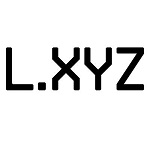Protocol
| Projects | Projects | Status | Date start | Raised | Launchpad | Ecosystem | X score | Interest lvl | Industry | |||
|---|---|---|---|---|---|---|---|---|---|---|---|---|
ICO Ongoing | Jan 30, 2025 | Finance +2 | ||||||||||
ICO Ongoing | Dec 12, 2025 | Trading & Investing +4 | ||||||||||
| TBA | AI +1 | |||||||||||
| TBA | Trading & Investing +2 | |||||||||||
| TBA | Blockchain +3 | |||||||||||
| TBA | $7M | Finance +4 | ||||||||||
| TBA | $3M | Finance +5 | ||||||||||
| TBA | $2M | Finance +6 | ||||||||||
| TBA | DeFi +1 | |||||||||||
| TBA | $0,5M | Trading & Investing +4 | ||||||||||
IEO Past | Dec 17, 2025 | Trading & Investing +3 | ||||||||||
IDO Past | Apr 13, 2021 | Blockchain +3 | ||||||||||
| TBA | Trading & Investing +1 | |||||||||||
IDO | Dec 12, 2025 | Gambling +3 | ||||||||||
| TBA | $5,2M | Finance +2 | ||||||||||
| TBA | $1M | Finance +5 | ||||||||||
| TBA | $8M | Exchanges & Wallets +2 | ||||||||||
| TBA | Health & Medicine +2 | |||||||||||
IDO Past | Oct 31, 2025 | $15M | Art & Music +3 | |||||||||
IDO Past | Oct 29, 2025 | AI +3 | ||||||||||
| TBA | Finance +1 | |||||||||||
| TBA | Trading & Investing +2 | |||||||||||
IDO Past | Dec 22, 2025 | Finance +3 | ||||||||||
ICO | Oct 01, 2025 | DeFi +3 | ||||||||||
ICO Past | Sep 12, 2025 | Protocol +1 | ||||||||||
IEO IDO Past | Oct 17, 2025 | $5M | Multi-Chain Platform +3 | |||||||||
| TBA | Trading & Investing +3 | |||||||||||
ICO Past | Sep 15, 2025 | DeFi +1 | ||||||||||
IDO Past | Oct 01, 2025 | DeFi +1 | ||||||||||
| TBA | DeFi +1 | |||||||||||
IEO IDO Past | Sep 29, 2025 | $10M | DeFi +2 | |||||||||
ICO Past | Sep 04, 2025 | Trading & Investing +5 | ||||||||||
IDO Past | Sep 07, 2025 | Trading & Investing +4 | ||||||||||
ICO Past | Aug 27, 2025 | Exchanges & Wallets +5 | ||||||||||
| TBA | $13,4M | Finance +6 | ||||||||||
| TBA | Crowdfunding & Lending +2 | |||||||||||
ICO IDO Past | Dec 04, 2025 | $9,5M | Finance +5 | |||||||||
IDO Past | Aug 26, 2025 | $16M | DeFi +2 | |||||||||
ICO | TBA | DeFi +4 | ||||||||||
ICO Past | Aug 19, 2025 | Blockchain +5 | ||||||||||
IDO Past | Sep 06, 2025 | Blockchain +4 | ||||||||||
IDO Past | Aug 11, 2025 | DeFi +2 | ||||||||||
| TBA | $18M | Blockchain +6 | ||||||||||
IDO Past | Aug 18, 2025 | DePIN +2 | ||||||||||
IDO IEO Past | Sep 16, 2025 | Blockchain +5 | ||||||||||
| TBA | Trading & Investing +4 | |||||||||||
| TBA | DePIN +2 | |||||||||||
IDO Past | Jul 21, 2025 | Trading & Investing +3 | ||||||||||
| TBA | $1,1M | Finance +6 | ||||||||||
IDO | TBA | DeFi +1 | ||||||||||
What is crypto protocols
Cryptocurrency protocols are the basis for the functioning of digital currencies. They provide the principles and standards by which transactions are created, transmitted, and validated on the network. Protocols ensure the security, decentralization and transparency of cryptocurrency systems.
Protocols in the crypto space are a system of rules and procedures that define how network participants should interact, how transactions should be processed, and how the security of the network should be ensured. Protocols can vary and depend on the specific cryptocurrency or blockchain network.
For example, the protocol involved in the first cryptocurrency Bitcoin identifies the rules for generating new blocks, verifying transactions, and rewarding miners for their work. In turn, the protocol in Ethereum defines the rules for creating and executing smart contracts, thanks to which automated processes or services are performed. Protocols are the foundation of cryptocurrencies and blockchain networks, and their proper functioning is key to ensuring the safety and reliability of the network.
Types of protocols
The most well-known protocols that are involved in multiple blockchains:
- Proof-of-Work
- Proof-of-Stake
- Proof-of-Authority
- Delegated Proof-of-Stake
Core role of protocols in blockchains
Each of the known protocols performs certain functions like security, network integrity, verification and validation of transactions.
In addition, there are hybrid protocols, such as Cardano, which is based on the PoS protocol but uses its own version of consensus in the form of Ouroboros. With this approach, the Cardano ecosystem provides high security and decentralization using a science-based approach.
Ultimately, all protocols are executed within global blockchain ecosystems such as Bitcoin, Ethereum, Polkadot and so on.
But it is noteworthy that in the blockchain industry, protocols can unfold within broader ecosystems, solving larger problems.
In fact, protocols can be in the form of separate blockchain systems that are built on top of the underlying blockchain. This is done in order to improve the underlying network on which a particular system is run, to make it more capable of scaling. As a rule, such blockchains are called sidechains.
At the basic level, sidechains use consensus protocols such as PoS, PoW, PoA, DPoS, and so on. At the same time, such systems develop their own protocol solutions, which can contribute significantly to improving current blockchains by addressing many issues such as scalability, improved security, decentralization, transaction speed, and others.
For example, a protocol such as Uniswap is essentially a financial blockchain protocol built on Ethereum. The protocol actually enables decentralized exchange of assets using Automated Market Making (AMM) mechanics.
The Arbitrum blockchain is also a protocol that solves the scalability problem of the Ethereum core network by providing lower fees, higher security and faster transaction speeds. To achieve these goals, Arbitrum uses Optimistic Rollups in its architecture.
In the context of decentralized finance, a protocol refers to the software code that governs how digital assets are used on a blockchain network. Using smart contracts and virtual machines (VMs), DeFi protocols operate exchanges (DEX), allow users to conduct credit transactions in crypto-assets or, for example, launch decentralized autonomous organizations (DAOs).
Computer programs trigger smart contracts automatically. When predetermined events occur, smart contracts perform actions that do not require a third-party arbiter. This eventually forms into decentralized applications (DApps). Their code resides in the blockchain, which is essentially a distributed database.
In computer networks, protocols manage the processing and routing of data between the nodes. Blockchain networks provide an additional element in the form of smart contracts that define the conditions for data processing and execution. In turn, protocols establish certain rules for interaction, and algorithms execute them.
Algorithms, in turn, execute orders that enforce the protocol rules. Thus, DeFi systems take advantage of both smart contracts (rules) and algorithms (active execution) to keep the decentralized financial system up and running.
Conclusion
As we can see, protocols are an integral part of the blockchain and crypto industry. With protocol-level systems working smoothly and correctly, cryptocurrencies are more secure, decentralized, and efficient.
At the same time, a wide variety of protocol types and ecosystems confer a number of advantages, allowing people to choose more comfortable solutions to meet key needs. Obviously, we can expect new protocols and improvements to existing protocols to emerge in the future, which will contribute to the further development and more widespread adoption of cryptocurrencies.

















































